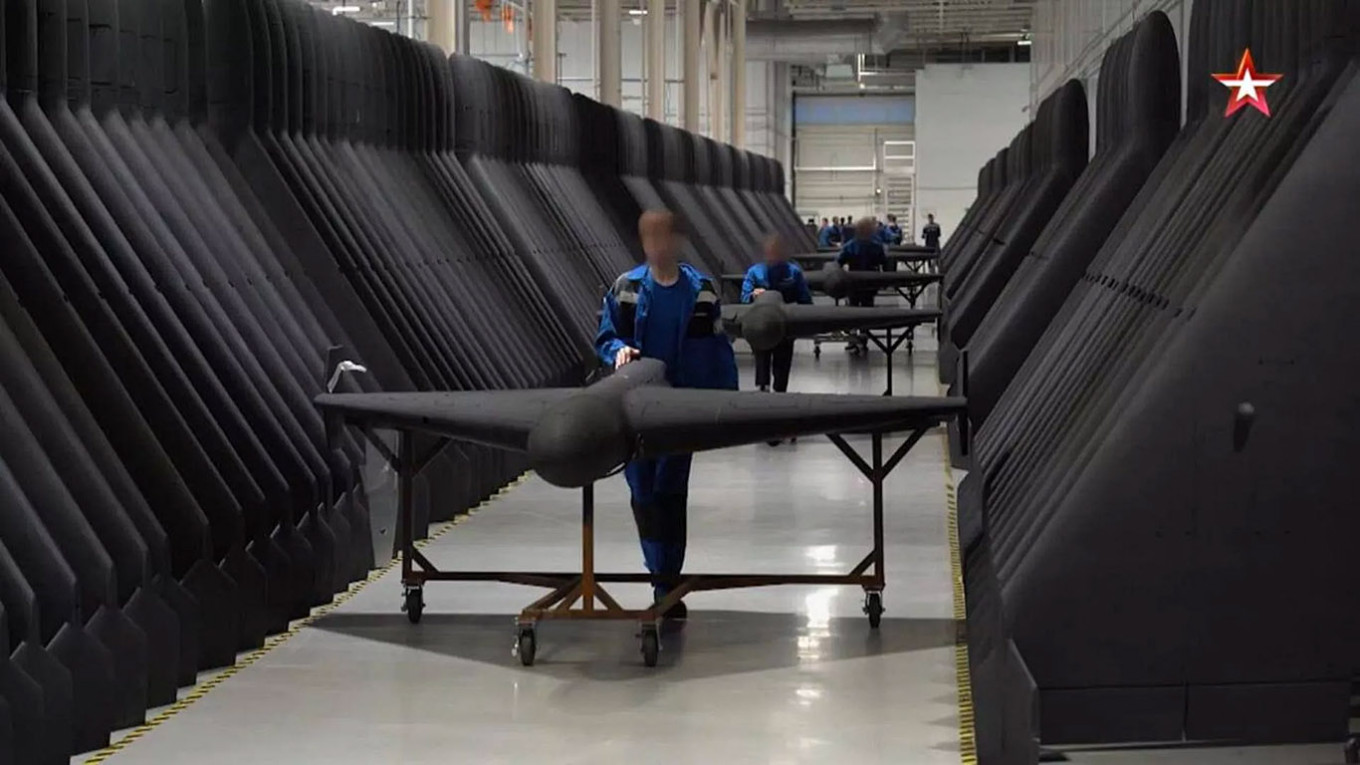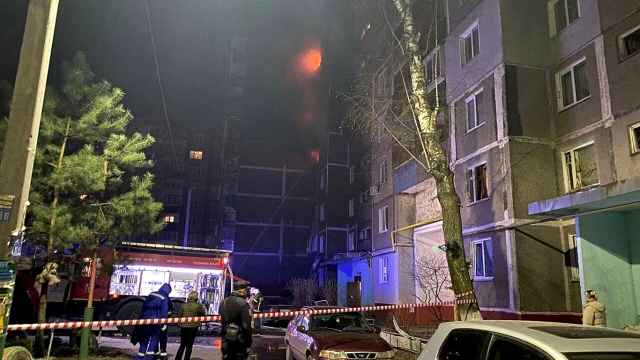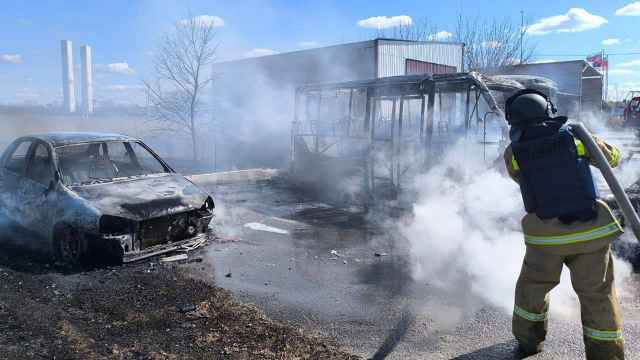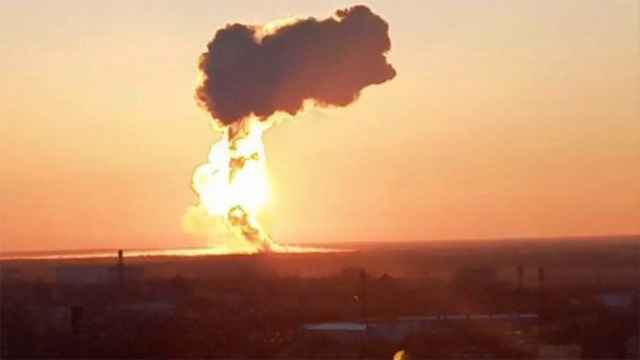Thanks to its failure to rapidly conquer Ukraine, Russia turned to the massive use of attack drones to wear down Ukrainian air defencss, destroy critical infrastructure and intimidate civilians. This would not have been possible without a stream of not only equipment delivered by Russia’s allies, but also a steady supply of foreign labor. Understanding this has the potential to provide an effective way to hamper Russia’s war economy.
Initially lacking its own production capacity, Moscow turned to Iran, purchasing Shahed-136 drones and manufacturing technologies, which allowed it in 2023 to start mass-producing Geran drones in the Alabuga special economic zone in the republic of Tatarstan.
Since 2024, Russia has upgraded its drones, improving their design and protection against electronic warfare. Moscow has also reduced dependence on smuggled and salvaged Western technology by switching to plentiful Chinese components. According to Ukraine's Defense Intelligence, as of May 2025, factories were producing up to 170 drones per day, a rate expected to increase to 190 per day by the end of the year. This is how Russia was able to launch over 6,000 drones against Ukraine in July, smashing the previous month’s record by about 1,000.
The Russian military-industrial sector employs about 4 million people, which is more than the population of some NATO countries. Despite this, the State Duma recognizes a shortage of 400,000 personnel in the defense industry.
That is why the Russian authorities plan to significantly increase the number of workers, both at the expense of Russian citizens and through the recruitment of migrant workers. In particular, this applies to the Russian drone manufacturer Alabuga. Since 2022, the number of employees at the company has at least doubled in a year to more than 25,000.
Due to non-market wages starting at $2,170, the plant has virtually no competitors in its region, where the average salary is about a thousand dollars. At the same time, the company's management is actively looking for labor from the Global South, offering slightly lower wages and worse working conditions.
For example, at the end of 2024, it emerged that the Alabuga Start program was recruiting women from Africa and Latin America, about 90% of whom work in drone manufacturing, especially tasks that require minimal skill. Despite the publicity and complaints about working conditions, recruitment is still ongoing.
Russian embassies and Rossotrudnichestvo offices in Africa are looking for candidates. In the last few months alone, the official websites of Russian institutions in the Central African Republic, the Democratic Republic of Congo and Ethiopia have published articles promoting Alabuga Start, which is used to select candidates in these countries.
For example, the Rossotrudnichestvo branch at the Russian House in Bangui, Central African Republic, is actually recruiting labor for the Russian military machine instead of promoting Russian culture. Unfortunately, Rossotrudnichestvo's branches have not yet been sanctioned and continue to operate, even in Europe.
Russia is also paying attention to Central Asia. In March 2025, Alabuga signed a memorandum with the Migration Agency of Uzbekistan to recruit up to 10,000 citizens for work. Active recruitment is carried out through social media and private recruitment companies. In addition, regular reports of successful Kyrgyz workers make this kind of work more appealing.
Overall, Alabuga's management plans to attract up to 25,000 new labor migrants, bringing the total number of employees to 50,000. The seriousness of these plans is evidenced by the intention to build an entire neighborhood for 50,000 people.
Reducing the producion capacity Russian defense industry is a priority not only for Ukraine but also for Western partners, including the United States. Russia's economy has been put on a war footing and cannot be stopped any time soon, giving Moscow a significant head start in the new arms race.
As well as China, Moscow is deepening its defense cooperation with the DPRK. In addition to the weapons transferred to Russia, Pyongyang may send thousands of workers to Russian arms factories. In return, the Kremlin, according to Ukrainian intelligence, has transferred to the DPRK technologies and equipment for the production of attack unmanned aerial vehicles.
Beijing's statement that Russia has no right to lose the war is also alarming. Moscow's authoritarian allies are using the war as a testing ground for their own weapons and to gain experience in modern warfare, which should concern the whole world.
The international community can also play a role reducing the involvement of labor migrants. For example, international human rights organizations and activists can inform potential workers in countries targeted for recruitment about the real conditions and risks of working in Russia’s defense industry.
At the same time, governments should expand sanctions lists to include organisations involved in the selection and recruitment of workers in the Global South, including Rossotrudnichestvo branches and related structures. It is also important to influence the donor countries of labor migrants by informing their governments about the involvement of citizens in the Kremlin's military programmes and initiating diplomatic pressure at the intergovernmental level to ban such practices.
In addition, the recruitment of labor migrants, often carried out through fraudulent and exploitative methods, may meet the criteria of human trafficking. Moscow is a party to the United Nations Convention against Transnational Organized Crime, which compels it to take action on this.
Employees in the Russian defense sector should understand that producing weapons for aggression against Ukraine is not only a moral choice, but also puts them at risk because drone production facilities are considered legitimate military targets. The Kremlin would bear responsibility for any casualties among foreign personnel, rising diplomatic tensions.
In general, the international community can indeed limit Russia's access to labor through sanctions, pressure and oversight, making its military production more difficult, which threatens not only the security of Ukraine but all of Europe. The West also has a unique opportunity to influence the course of the war by investing in joint production of defense technologies with Ukraine and increasing pressure on Moscow to support Ukraine’s defense and deter Kremlin aggression.
A Message from The Moscow Times:
Dear readers,
We are facing unprecedented challenges. Russia's Prosecutor General's Office has designated The Moscow Times as an "undesirable" organization, criminalizing our work and putting our staff at risk of prosecution. This follows our earlier unjust labeling as a "foreign agent."
These actions are direct attempts to silence independent journalism in Russia. The authorities claim our work "discredits the decisions of the Russian leadership." We see things differently: we strive to provide accurate, unbiased reporting on Russia.
We, the journalists of The Moscow Times, refuse to be silenced. But to continue our work, we need your help.
Your support, no matter how small, makes a world of difference. If you can, please support us monthly starting from just $2. It's quick to set up, and every contribution makes a significant impact.
By supporting The Moscow Times, you're defending open, independent journalism in the face of repression. Thank you for standing with us.
Remind me later.






